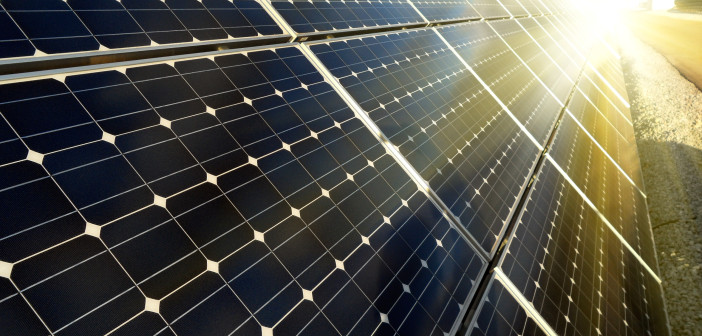The independence and satisfaction of being totally free from other sources is what makes solar energy so great. Advanced technologies have given homeowners and businesses the opportunity to be their own independent power company by harnessing the energy from the Sun.
How Does Solar Energy Work?
Solar energy is electricity harnessed from the power of the Sun. A quick overview of how this process is used begins with homes and businesses. Each day the sun rises setting the stage for this valuable energy resource.
Homes and businesses equipped with solar panels soak up the Sun’s energy. The panels convert sunlight particles called photons into electrons of direct current. The electrons flow from the panel into an inverter. This device converts the direct current into alternating current.
Alternating current is natural electricity used to power home appliances, air conditioning, heating and any other electrical devices. A bi-directional meter monitors the energy input and output. For systems wired to the regular electric grid, the unused energy goes back through the meter into the regular electric grid. The solar energy powered homeowner receives a credit for this unused power from the power company.
One drawback of hooking to the power grid is when a disruption of service happens on their end, the homeowner loses electricity. Many homeowners would rather be solely independent of the regular grid because of that problem alone. Installing a supply of rechargeable batteries so that extra power flows directly into them resolves that problem.
This keeps the electricity on for the solar powered homeowner although the entire neighborhood surrounding them might be without power. The option of hooking up to the grid to sell unused electricity to the power company should be a decision not hastily made. The whole purpose of being solar energy independent is that ability to be free from power outages. More information about solar panel design, components and requirements can be found at here.
Solar Energy Preparation
Forethought along with careful preparation should be used when making decisions on how large and type of system installation is needed to maintain family energy needs. An energy audit of the home should be scheduled to determine if any home improvements could be made to reduce electrical usage. This can save homeowners additional costs by installing a smaller solar panel system. Any installation company can give homeowners all the details needed to answer any concerns.
We talked with RNG Group Inc. about how solar energy panels work, and they explained, “solar panel systems can be installed on both roof and the ground. Roof mounted solar panels may need an additional inspection of the roof to determine stability to support the panel array. The roof structure might not be able to support the panels and need to be upgraded by replacement.”
There is the option of the ground installation depending on a homeowner’s choice. Ground mounted systems hold the solar panels in place by frames tied into ground mounted pole mounts. The poles can be driven into the ground or have concrete footings for stability.
Tax Credits and Savings
Homeowners should check into federal, state-by-state rebates and savings that might still be offered for green energy. The residential renewable energy tax credit is still in effect until December 31, 2016. Taxpayers can claim a 30% credit on expenditures for system installation in primary residences. To learn more about the credit, simply read about it here.
Many solar panel installation companies can give the homeowner all the details on any tax credits by state. The possibility of additional savings might be possible by the company offering a customer sale incentives for purchasing from them.
Other advantages to homeowners are solar panel systems can last homeowners a lifetime if properly maintained. Washing the solar panels off so sunlight can soak into them does most of the maintenance. Property values increase with the installation of a unit. Connecting to the grid allows homeowners to sell electricity back to the power company through net metering. The major disadvantage is from a disruption in power from being connected to the major electrical grid.




